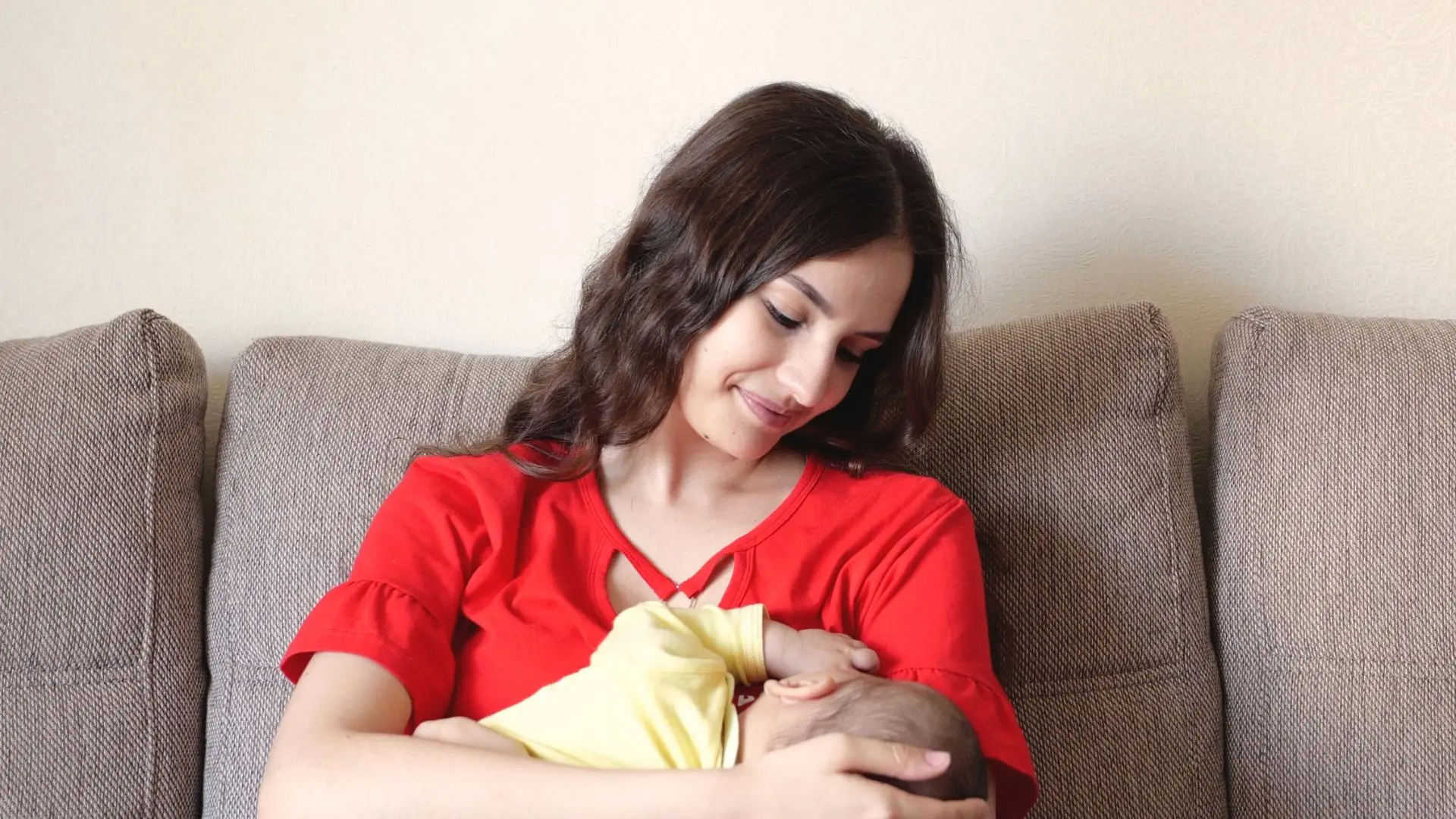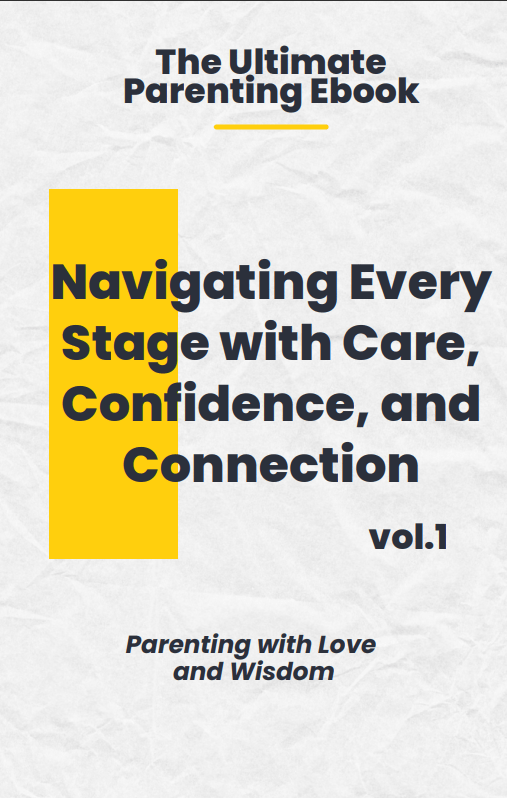
At 9 months, your baby is moving more, exploring the world, and likely hitting some big milestones. But if you’ve recently found yourself navigating more frequent wake-ups, shortened naps, and sudden bedtime struggles, you’re not alone.
The sleep regression at 9 months is a challenging phase, but the good news? It’s manageable with a few intentional changes. Let’s dive into what’s really going on during this stage and how you can get back to restful nights for both you and your baby.
In This Blog
ToggleWhat Causes Sleep Regression at 9 Months?
Sleep regression at 9 months can seem to come out of nowhere, but there are some specific factors at play:
- Developmental Milestones: At this age, babies are mastering new skills like crawling, pulling up, and maybe even standing. These physical leaps are exciting for them, but they can also disrupt sleep. Their bodies and brains are learning so much that it can be hard to fully “shut down” at bedtime.
- Cognitive Leaps and Curiosity: Your baby’s cognitive development at 9 months is booming. They’re starting to understand the world more, leading to things like separation anxiety—which can make them clingier at night. They’re also curious, and this heightened interest in their surroundings can make it harder to settle down.
- Nap Transitions: Many babies at this age begin consolidating their naps. This change can sometimes lead to a “nap regression” where they struggle with shorter or skipped naps, which in turn affects night sleep.
Common Signs of Sleep Regression in 9-Month-Olds
To make sure you’re actually dealing with sleep regression at 9 months, here are the common symptoms to look out for:
- More frequent wake-ups at night, often at the same time.
- Difficulty falling back asleep without help.
- Shorter or missed naps, leading to crankiness and overtiredness.
- Increased clinginess around bedtime, fueled by separation anxiety.
If you’re seeing these signs, take a deep breath. Let’s go through some actionable tips to help you both sleep better.
Why Sleep Regression at 9 Months Feels Especially Hard
The 9-month sleep regression can be one of the most challenging, and here’s why: it hits at a unique intersection of physical, cognitive, and emotional development.
Your baby is not only more active but also starting to sense when you leave the room, and they’re curious about the world. Combined, these factors make it tough to maintain a consistent sleep routine.
Add to this any changes in feeding patterns, teething, or illness, and you’ve got a perfect storm of baby sleep problems at 9 months. But don’t worry; with a little consistency and some tweaks to your approach, you can help your baby settle down for better sleep.
Baby Sleep Problems at 9 Months: Real Solutions to Try Now

1. Set a Consistent, Soothing Bedtime Routine
Babies thrive on routine, especially during times of change. A calming bedtime routine helps signal to your baby that it’s time for sleep. Start with a warm bath, dim the lights, and engage in quiet activities like reading or singing softly.
White noise can also help create a sleep-friendly atmosphere by drowning out any sudden sounds that might wake them up.
2. Optimize the Sleep Environment
Ensuring a comfortable sleep space is crucial. Aim for a cool, quiet, and dark room, which can help your baby feel secure. Consider a comfort object like a small, breathable blanket or lovey if your baby is old enough and it’s safe. Avoid visual distractions in the crib, as too many objects can make it harder for babies to settle down.
3. Address Separation Anxiety Gradually
Separation anxiety is real and powerful at 9 months. Babies start realizing that when you leave, you’re not immediately there anymore, which can lead to extra wake-ups.
To ease this anxiety, try the Chair Method or gradual withdrawal—this means sitting near their crib and gradually moving further away each night. A consistent approach can reassure them while teaching them to sleep independently.
4. Create a Flexible but Consistent Nap Schedule
Consistency is key, but flexibility is also important when dealing with nap regression at 9 months. Aim for two naps a day, roughly around the same time each day. If your baby is struggling with naps, don’t stress too much about strict schedules; instead, focus on reading their cues.
An overtired baby will have an even harder time sleeping at night, so do your best to keep naps regular but not overly rigid.
5. Avoid Overstimulation Close to Bedtime
By 9 months, babies are more curious and love exploring, but too much excitement close to bedtime can backfire. Avoid high-energy play an hour before bed. Instead, stick to calm activities like reading or singing. Overstimulation can make it harder for them to unwind, leading to more night wake-ups.
6. Be Mindful of Feeding and Hunger Patterns
At 9 months, some babies still need a nighttime feed, but you may be able to reduce wake-ups by ensuring they’re full before bed. A small, healthy snack before bedtime can help, or a final nursing session if you’re still breastfeeding. Make sure they’re getting enough to eat during the day so they’re less likely to wake up hungry.
7. Try Gentle Sleep Training Methods (If Necessary)
If your baby’s sleep regression at 9 months seems unmanageable, you might consider gentle sleep training. Methods like the Ferber Method or the Pick Up/Put Down method can help.
Remember, every baby responds differently, so observe how your baby reacts and adjust as needed. The key is to stay calm and consistent, even if sleep training requires a bit of patience.
Sleep Regression 9 Months: What to Do When You Feel Stuck
When to Seek Professional Help
If you’ve tried everything and your baby’s sleep hasn’t improved, it might be time to consider a pediatric sleep consultant. Professional help can make a big difference, especially if your baby has unique challenges that go beyond typical regression. Sleep consultants can offer personalized plans that take your baby’s specific needs into account.
Self-Care Tips for Exhausted Parents
Sleep regression can leave parents feeling just as exhausted as their babies. It’s crucial to prioritize your own rest and well-being during this time. Try trading off nights with your partner or leaning on family for extra help. Even a few nights of good sleep can make a big difference in your energy and patience levels.
Conclusion
The sleep regression at 9 months may feel like a never-ending struggle, but remember, it’s temporary. By focusing on consistency, creating a calming environment, and addressing separation anxiety, you’re setting a foundation that will help your baby (and you!) sleep more soundly. Above all, trust your instincts and know that you’re doing an amazing job navigating this phase.
With these expert tips, you’re equipped to tackle the 9-month sleep regression with confidence and help your little one get back to restful nights.
You may also be interested in : Why Newborn Nail Care Matters and How to Do It Right from Day One
FAQs
1. What is sleep regression at 9 months?
Sleep regression at 9 months is a phase where babies experience disruptions in their sleep patterns, often waking more frequently or resisting naps. It’s typically due to developmental milestones, increased mobility, and separation anxiety. This phase is temporary and can be managed with consistent routines and a soothing sleep environment.
2. How long does the 9-month sleep regression last?
Most 9-month sleep regressions last between 2-6 weeks, although this varies from baby to baby. With consistency in sleep routines and gentle sleep training, you can help your baby return to more stable sleep within this timeframe.
3. Why is my 9-month-old suddenly waking up at night?
At 9 months, babies often wake due to increased activity in their brain and body. Developmental milestones, separation anxiety, and teething can all contribute to frequent night wakings. Setting a consistent sleep routine and providing a calming environment can help manage this.
4. How can I help my 9-month-old through sleep regression?
To help your baby, create a calming bedtime routine, ensure the sleep environment is dark and quiet, and consider gentle sleep training if needed. Address separation anxiety with gradual comfort techniques, and keep nap schedules flexible but regular.
5. Does every baby go through a 9-month sleep regression?
Not all babies experience a noticeable 9-month sleep regression, but many do due to cognitive and physical developments. Babies who have recently learned to crawl, stand, or become more socially aware may be more susceptible to sleep disruptions.
6. Can teething cause sleep regression at 9 months?
Yes, teething can contribute to sleep disruptions at 9 months, but it’s not always the main cause. Teething pain, combined with other developmental milestones, can lead to increased night wakings and difficulty settling back down.
7. What is nap regression at 9 months?
Nap regression at 9 months refers to a period when babies begin resisting naps or taking shorter naps than usual. This happens because they’re developing rapidly and may also be transitioning from three to two naps per day.
8. Should I feed my baby during night wakings in sleep regression?
Some 9-month-olds may still need a nighttime feed, but avoid over-relying on feeding for comfort. Ensure they’re getting enough calories during the day. If you feel they’re waking from hunger, a gentle feed might help, but try to reduce dependency gradually.
9. Is sleep training recommended during the 9-month sleep regression?
Gentle sleep training can be effective if your baby’s sleep hasn’t improved with other methods. Techniques like the Chair Method or Pick Up/Put Down can provide comfort while fostering independence. Always adapt to your baby’s needs and response.
10. Can separation anxiety affect sleep at 9 months?
Yes, separation anxiety peaks around this age and can significantly impact sleep. Babies may resist bedtime or wake more frequently to seek reassurance. Try gradual withdrawal techniques to ease anxiety and help them feel secure at night.
11. How can I adjust my 9-month-old’s nap schedule?
If your baby is transitioning from three to two naps, aim for two longer naps and adjust bedtime if needed. Consistency is important, but be flexible with nap times based on your baby’s cues to prevent overtiredness, which can worsen night sleep.
12. Why is my 9-month-old taking shorter naps?
Shorter naps are common during nap regression as babies consolidate naps or experience developmental changes. Try to keep a regular nap routine, and allow some time to settle if they wake early to encourage longer naps.
13. Should I let my 9-month-old cry during sleep regression?
Every parent has different approaches, but gentle methods, like the gradual withdrawal technique, can help comfort your baby without prolonged crying. It’s okay to provide reassurance while slowly encouraging more independent sleep.
14. How can I prevent overstimulation before bed?
Limit stimulating activities like rough play or screen exposure in the hour before bed. Opt for calming activities like reading or singing to help your baby wind down and prepare for sleep without overstimulation.
15. Why does my baby wake up right after putting them down?
At 9 months, increased awareness and separation anxiety can cause babies to wake soon after being placed in their crib. Using a consistent bedtime routine and offering a comfort object can help ease the transition and reduce night wakings.
16. How do developmental milestones affect sleep regression?
New skills like crawling and standing engage both mind and body, often leading to wakefulness as they practice these abilities. This can interfere with sleep until they become more comfortable and confident in their new abilities.
17. Can a sleep consultant help with sleep regression?
Yes, a pediatric sleep consultant can provide tailored advice if your baby’s sleep problems persist. They’ll assess your baby’s sleep needs and routines to create a plan that supports restful sleep for everyone.
18. Will sleep regression stop on its own?
Yes, sleep regression is temporary and typically resolves as babies adapt to their new skills and routines. However, using consistent sleep habits and gentle techniques can make this phase easier for you and your baby.
19. How do I know if it’s sleep regression or another sleep issue?
If your baby’s sleep disruptions are coupled with new skills, separation anxiety, or nap changes, it’s likely sleep regression. If problems persist beyond 6 weeks, consult your pediatrician to rule out other potential issues.
20. How important is a bedtime routine during sleep regression?
A calming bedtime routine is crucial. It signals to your baby that it’s time to wind down, promoting relaxation and helping them adjust to regular sleep. Even minor tweaks to the routine can help create a smoother, more peaceful bedtime.




